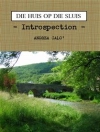GIS for Science, Volume 3: Maps for Saving the Planet, highlights real-world examples of scientists creating maps about saving life on Earth and preserving biodiversity.
With Earth and the natural world at risk from various forces, geographic information system (GIS) mapping is essential for driving scientifically conscious decision-making about how to protect life on Earth. In volume 3 of GIS for Science, explore a collection of maps from scientists working to save the planet through documenting and protecting its biodiversity.
In this volume, learn how GIS and data mapping are used in tandem with
- global satellite observation
- forestry
- marine policy
- artificial intelligence
- conservation biology, and
- environmental education
to help preserve and chronicle life on Earth. This volume also spotlights important global action initiatives incorporating conservation, including Half-Earth, 30 x 30, AI for Earth, the Blue Nature Alliance, and the Sustainable Development Solutions Network.
The stories presented in this third volume are ideal for the professional scientist and conservationist and anyone interested in the intersection of technology and the conservation of nature. The book’s contributors include scientists who are applying geographic data gathered from the full spectrum of remote sensing and on-site technologies. The maps and data are brought to life using Arc GIS® software and other spatial data science tools that support research, collaboration, spatial analysis, and science communication across many locations and within diverse communities. The stories shared in this book and its companion website present inspirational ideas so that GIS users and scientists can work toward preserving biodiversity and saving planet Earth before time runs out.
Daftar Isi
INTRODUCTION
GIS for Science: A Framework and a Process
Introduction by the Editors
Foreword
PART 1: How Earth Works
Earth’s Coastlines
Preventing Species Extinctions
Mapping Half-Earth
PART 2: How Earth Looks
From Plots to Pixels
Blueprint for a Better Future
Conserving the Last Ocean Frontiers
PART 3: How We Look at Earth
AI for Geospatial Analysis
Mapping Extreme Events from Space
The Science of Ocean Acoustics
PART 4: Training Future Generations of Scientists
Spatial Thinking Effects on the Human Brain
Fueling Curiosity to Foster a Healthy Planet
Teaching Spatial Data Science and Deep Learning
PART 5: Technology Showcase
Drone Data Automation with Site Scan for Arc GIS
Mapping Biodiversity
Modeling Global Streamflow
Climate Data for the GIS Community
Visualizing Vessel Traffic
Revealing Sunken Ships with Geo AI
The Art of Frequency and Predominance
Understanding the Patterns of COVID-19
Monitoring Global Snow Cover
People for the People
Analyzing Global Water Quality over Time
Growing Degree Day Models
Interactive Suitability Modeling
Inside Submarine Volcanic Eruptions
Spatiotemporal Machine Learning
Tentang Penulis
Pulitzer Prize winner












